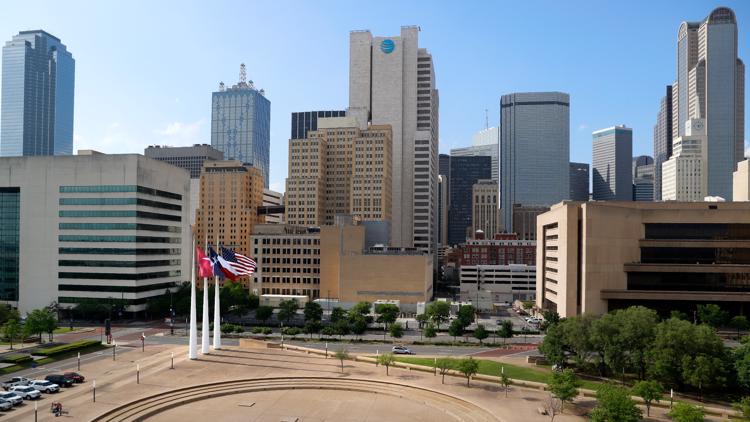On Friday morning, Dallas City Manager T.C. Broadnax announced that 500 municipal employees will be furloughed through at least July 31, as the city tries to face economic challenges brought by the coronavirus pandemic.
“A furlough is a very difficult decision to make but it is necessary to reduce our immediate staffing expenses and manage the anticipated budget shortfall of an estimated $25 million in the current fiscal year,” said Catherine Cuellar, a City of Dallas spokeswoman.
As sales taxes and other municipal revenues have evaporated during the pandemic while businesses have been forced closed, Cuellar explained that they are expecting an additional shortfall of between $73 million to $134 million for the fiscal year that starts in October.
Employees across 10 departments were informed on Friday of the furloughs. Cuellar said that the city is “protecting essential civilian employees and core service workers,” which include sectors like public safety, utilities, and sanitation.
Mayor Eric Johnson said in a statement that he “knew such measures were likely” and lamented that they were needed.
“Further difficulties may still be ahead as we face historic budget shortfalls caused by COVID-19,” Johnson said. “But I want to assure City of Dallas employees and the people of Dallas that I will continue to advocate for equity and fairness as we seek federal assistance and work to reduce our expenses while maintaining as many key services as possible."
Cities and counties across the state are experiencing similar staffing and budget cuts. San Antonio furloughed 270 employees and Fort Worth has furloughed as least 79 employees. In Houston, Mayor Sylvester Turner also forecasted furloughs for the next fiscal year in what could be “the worst budget that the city will deal with in its history.”
Experts and local leaders have warned that the next fiscal year will be a historically hard one for cities.
“Sales taxes are typically 29% to 30% of an average city's revenue. And sales taxes are just going to be way off for the foreseeable future,” said Bennett Sandlin, the executive director of the Texas Municipal League, in April. “Sales taxes are tied to retail economic activity, among others. And that's just been shut down in the vast majority of urban areas in our state."
The Texas Tribune is a nonpartisan, nonprofit media organization that informs Texans — and engages with them – about public policy, politics, government and statewide issues.
More on WFAA:
- 61% of Texas restaurant workers out of a job, industry group estimates
- Furloughed or laid off? What's the difference?
- Neiman Marcus to furlough or cut pay for most of its 14,000 employees
- J.C. Penney will furlough most hourly store associates, 'significant portion' of corporate workforce
- Furlough Kitchen offers daily meal to restaurant workers laid off in COVID-19 crisis



